DC20 is an upcoming Tabletop RPG in the vein of D&D 5e that recently raised over 1.4 million dollars on Kickstarter. Developed by the TTRPG influencer Dungeon Coach, DC20 promises to be “what 5e players have been looking for”, with fresh mechanics and greater versatility. The full game isn’t out yet, but the current 0.7 beta has been in development for a long time. Let’s look at every major rule change in DC20.
Major Rule Changes from DnD 5e to DC20
Action Point System for Combat
Similarly to Pathfinder 2e, player characters in DC20 have a number of actions they can perform during their combat turn. Unlike Pathfinder, most actions cost just one action point. Modifying those actions for better or more complex results, for example, by getting an advantage on the roll, costs extra. Four Action Points sound like a lot, but keeping some for the enemies’ round might be a good idea, as some actions can be executed during another turn.
Taking the same action multiple times in the same turn adds a disadvantage for each roll after the first. Attacking twice during your turn will result in one attack without an advantage or disadvantage and another at a disadvantage. At the same time, players can spend an Action Point to get an advantage, mitigating the disadvantage of their second roll.
The Six Ability Scores are now Four Attributes
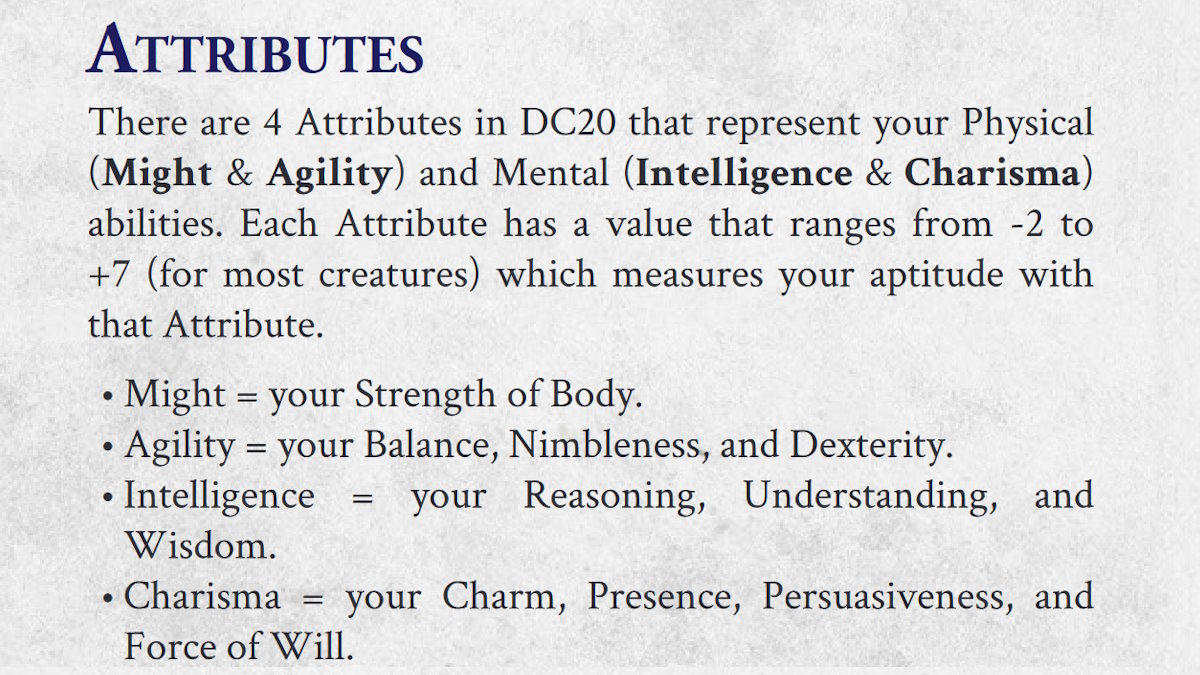
The six classic attributes that have been with Dungeons & Dragons since 1974 have been reduced to just four. These are Might, Agility, Charisma, and Intelligence. Strength and Constitution have been compressed into Might, while the traits of Wisdom are distributed in Charisma and Intelligence.
Attributes are further streamlined by making the scores and modifiers one and the same. In D&D, an ability score of 12 gives a modifier of +1, 14 of +2, and so on. Meanwhile, attributes in DC20 range from -1 to +3, at least at level one, and their ability score is equal to the attribute’s value.
The other major change that stems from Ability Scores is the prime modifier. When dealing with plenty of rolls, most commonly when attacking and casting spells, you’ll be required to add your Prime Modifier to the result. The Prime Modifier is equal to your highest Attribute score. This would allow a Wizard to cast spells on Might or a Barbarian to attack with Charisma.
Mana for Casters, Stamina for Fighters
The main resource used to trigger actions in combat is Action Points, but it’s not the only one. Both casters and fighters get an additional supply of points that can turn a simple attack into a game-changing turn. Stamina is used for physical feats, while Mana is used to cast the most impressive spells.
While Action Points refresh between turns, Stamina is recovered when combat ends. Mana is recovered after a long rest.
Armor Class is Out, Physical and Mystical Defenses are In
This one is fairly straightforward. Every character and monster has two basic defenses instead of just Armor Class: one is for physical damage, and the other is for “Mystical.” Mystical defense is used against Sonic damage, Radian and Umbral damage, and Psychic energy. Everything else, Physical and Elemental forces, are blocked using your Physical defense.
Skills Mastery Instead of Skill Points
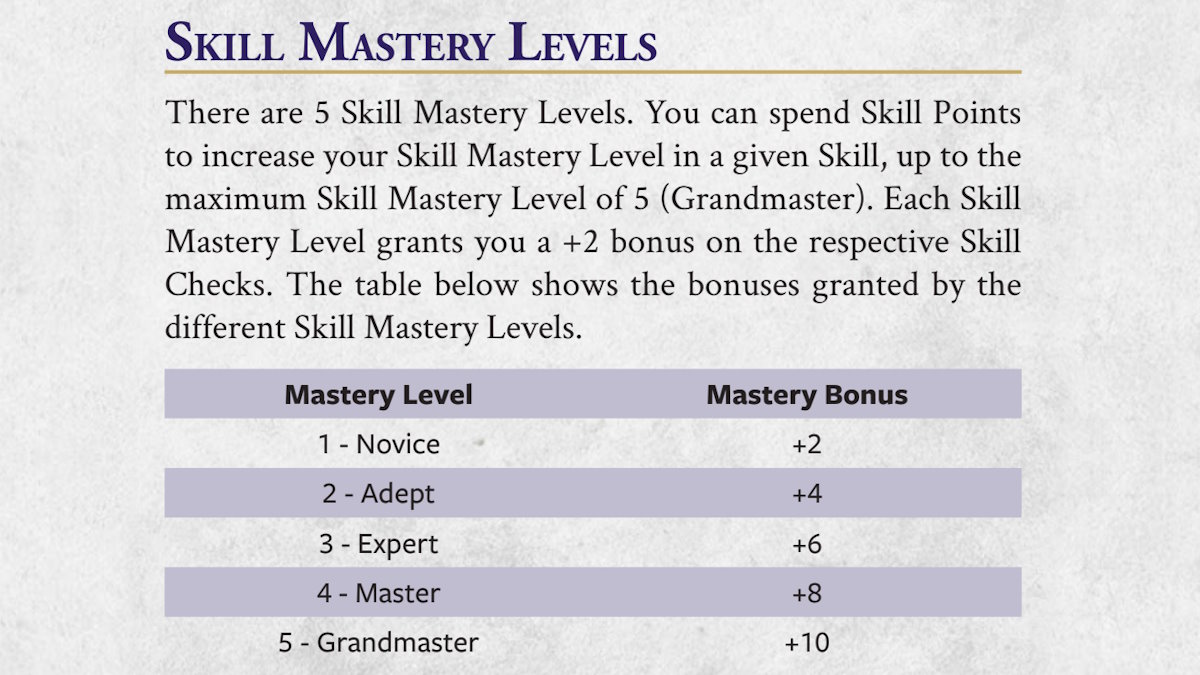
Skill Mastery attempts to simplify skill point advancement from D&D, but it’s unclear how much it succeeds. To make a convoluted system simple, players can spend their Skill Masteries to get a bonus in certain skills. Using more than one Mastery on the same improves one’s mastery (and bonus), but it’s only possible starting from a certain level. To overcome this limitation, players can use Skill Expertise, which functions exactly like Skill Mastery, but it is immune to its limitations.
Tools, an unsuccessful mechanic introduced by D&D 5e, have been removed. In its place are Trades. Those work just like skills and are obtained the same way, even sharing their same limits.
Skill rolls have degrees of success now. Rolling above or below the threshold of success by multiples of five (5, 10, 15, and so on) leads to increasingly better or worse results.
Death Saves Became Death’s Door
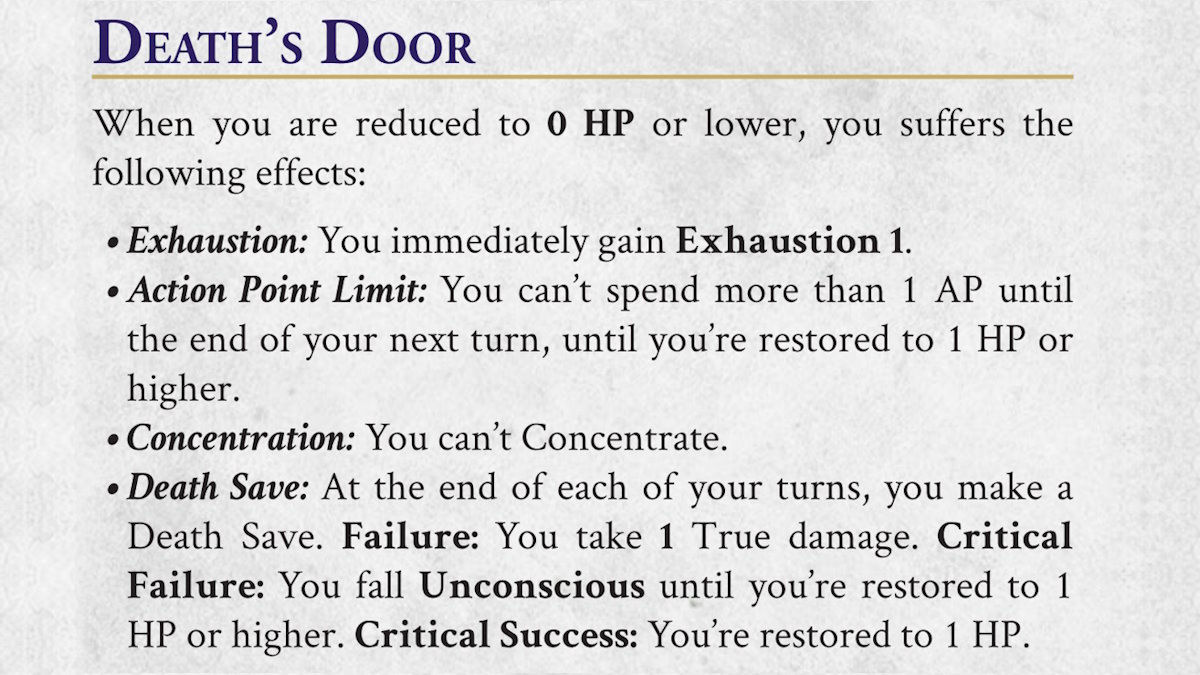
When a player character’s health goes below zero in DC20, they are considered “on Death’s Door.” This system is different from falling below zero HP in D&D 5e for two reasons. First, the character doesn’t fall unconscious in DC20. Second, while the system is similar, PCs in D&D have a chance to go back to 1 HP all on their own. That’s not the case in DC20, making Death’s Door a much more lethal system overall.
Spells and Maneuvers are Completely Revamped
The spell slot system is gone. The version of this system found in D&D 5e was already much simpler than the one found in previous editions, so this change feels natural. Spells consume Action Points and, occasionally, some Mana. Players can spend extra Mana and Action Points to enhance their spells, using APs and MPs to turn a single Magic Missile into a barrage.
Maneuvers are equally varied but work very differently. Most of them are tied to melee attacks, and they all require Action Points to be executed. Those include actions like Trip or Knockback. The exceptions are Defense Maneuvers, which cost Action Points but don’t usually require a roll. Reducing rolls helps make the game faster, but it also makes defensive plays more useful. Each weapon type also comes with its own distinctive Maneuver.
Small Rules Changes in DC20
We looked at all the major changes in DC20, but what about the more subtle edits? Here is a short, incomplete list:
- Proficiency is only used in combat and is now called Combat Mastery.
- Advantages and Disadvantages stack, making it possible to get two advantages (roll 3d20, keep the best one).
- Critical Success and Failure has been slightly altered.
- Techniques give non-spell-casting characters more options to play with.
- By default, DC20 uses squares instead of feet.
- All numbers are smaller and more manageable.
There are plenty more details: rules for jumping length, controlled and uncontrolled falling damage, a super convoluted initiative system, and so on.
Hopefully, the final product will fit those small rules in a more manageable format. As they stand, they seem hopefully difficult to bring into play. How many times are you going to have to reference the manual for falling damage before you learn the difference between holding your breath calmly and holding it while under stress?
Only time will tell. For now, those are all the rule changes from D&D 5e to DC20. We’ll know how successful this new D&D alternative will be once the full game is out. Meanwhile, keep up with our DC20 guide hub for more content.





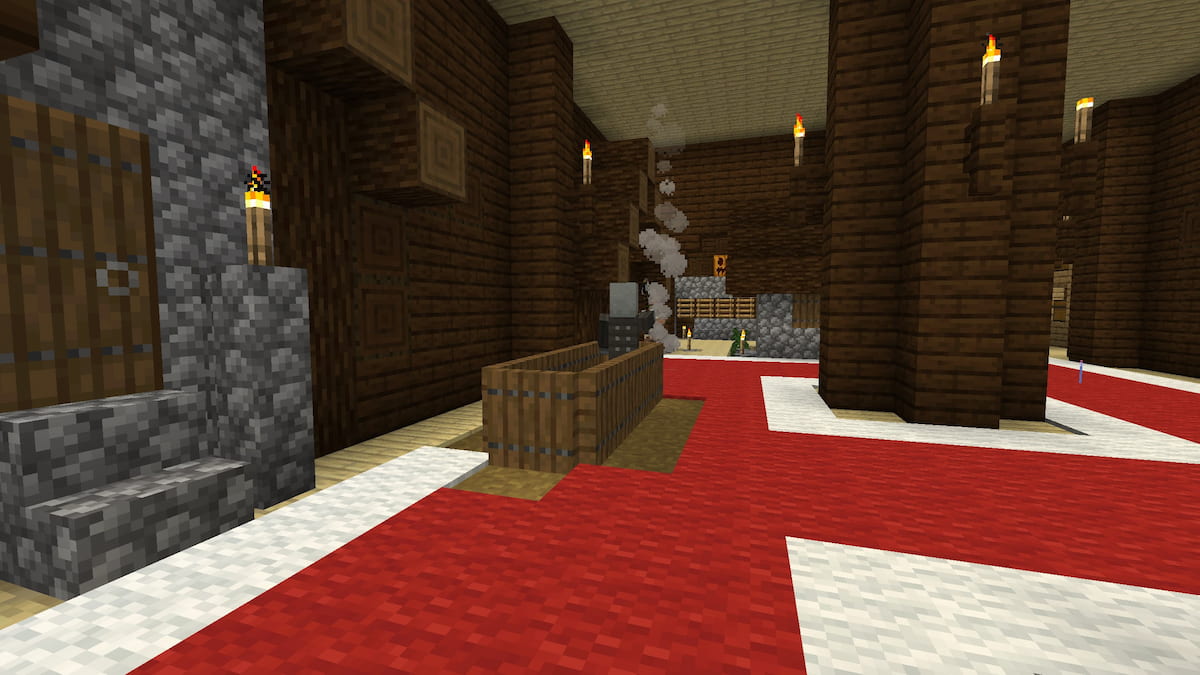

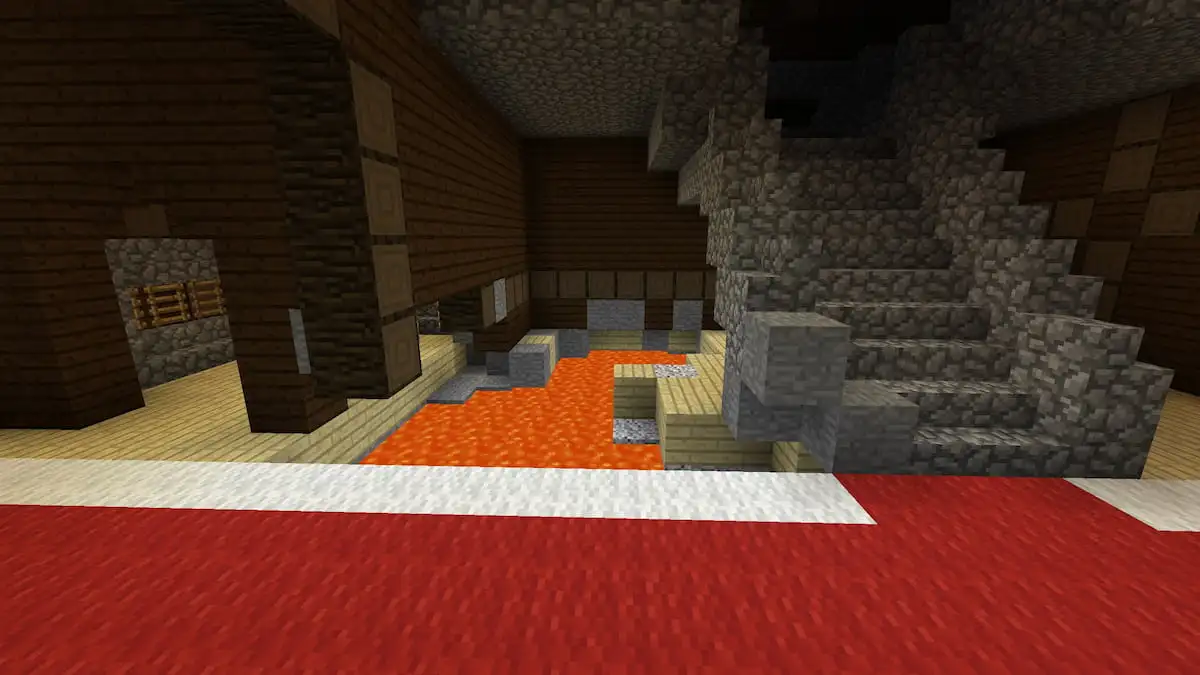

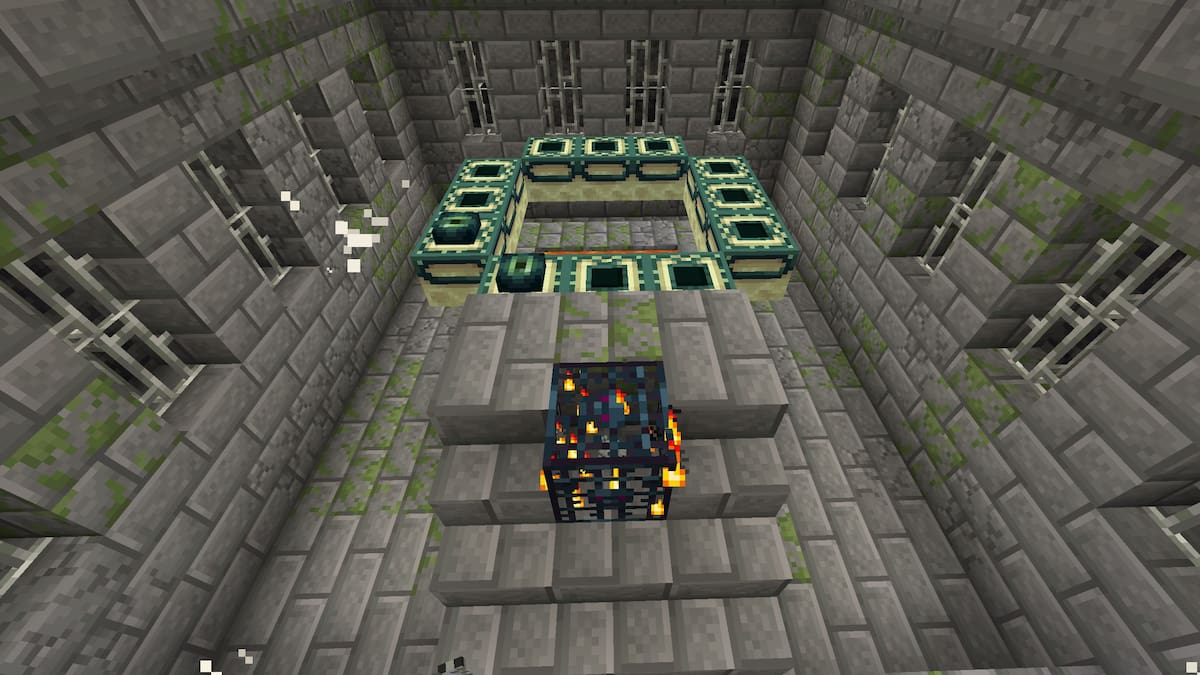
Published: Jun 17, 2024 05:42 am